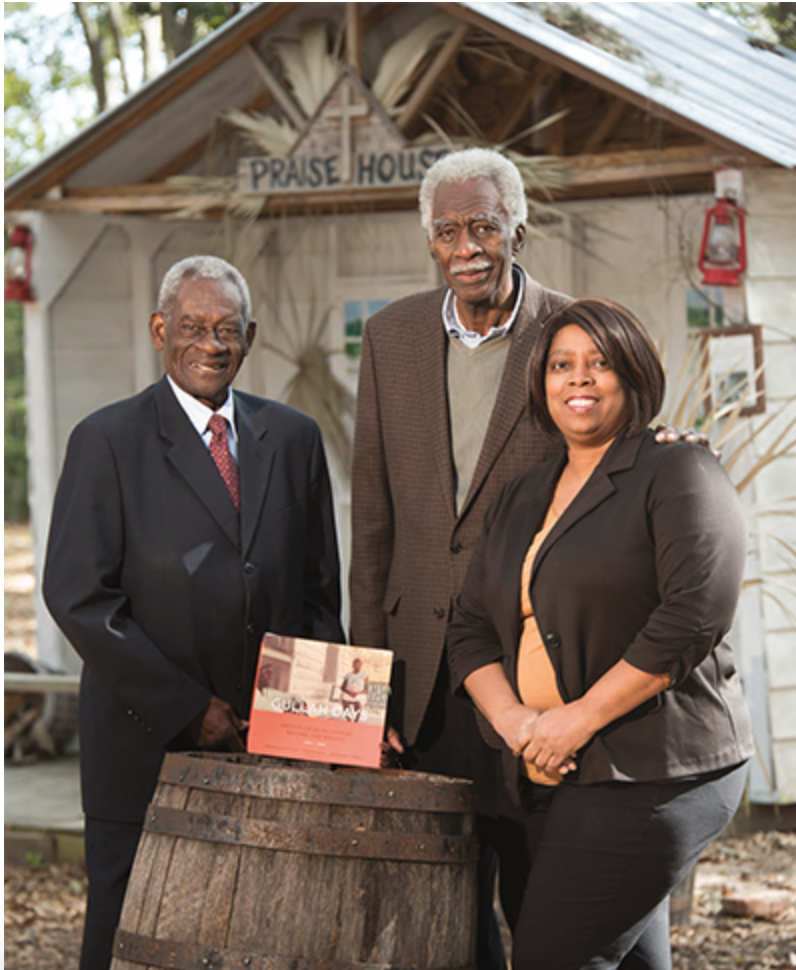“The Gullah…had existed without the need for cash. Everything the Gullah people needed was done by them, among them, and you might say in coordination with the entire community.”
Emory Campbell (em-more-ee kam-bull)
micro-biologist, activist
IMAGE SOURCE: Photo by Rob Kaufman in “Bridging Past and Future.” Hilton Head Monthly. 28 Jan. 2020. | TEXT SOURCE: Brian Andrew Graves. “Communication, Development and Cultural Preservation: The Case of Gullah History and Culture on James Island, SC.” Doctoral Thesis. UNC Chapel Hill. 2010.
QUOTE CONTEXT: “If you needed a net knitted, you knew where the net knitter was. You shared information… Now on the island people…have a job that takes all their time and hardly ever get to go fishing. They realize they’ve changed day-to-day occupations and a way of life.”
QUOTE QUESTION: How did your People survive before there was a cash economy?
IMAGE CONTEXT: “In their new book, “Gullah Days: Hilton Head Islanders Before the Bridge,” authors Carolyn Grant, Thomas C. Barnwell, Jr. and Emory Campbell (middle) present a meticulous history of the Gullah people, beginning with “the day of the big gun shoot.”
IMAGE QUESTION: Where and with whom do you stand to affirm your ancestors’ lessons?
MEDIA LITERACY CONTEXT: The quote is from a doctoral thesis and the photo is from a monthly place-based magazine.
MEDIA LITERACY QUESTION: What media sources are interested in the history of your People?
LEARN ABOUT THE GULLAH/GEECHEE: https://gullahgeecheecorridor.org/about/
DOWNLOAD THE GULLAH/GEECHEE SLIDE DECK FOR EDUCATIONAL PURPOSES:

